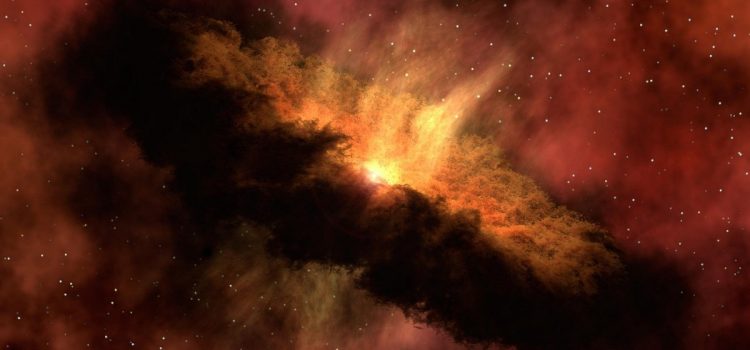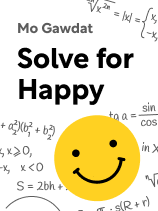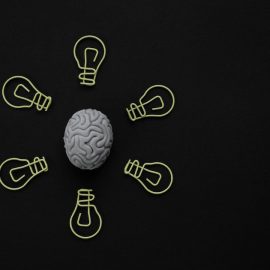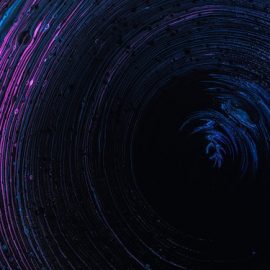

This article is an excerpt from the Shortform book guide to "Solve for Happy" by Mo Gawdat. Shortform has the world's best summaries and analyses of books you should be reading.
Like this article? Sign up for a free trial here.
Is there a creator? Was the universe designed? Where does the weight of evidence lie?
Either the universe was created, or it’s here by chance. Mo Gawdat argues that the materialist view is so improbable that we’re left with the likelihood of intelligent design. He believes that this is a good reason for us to be happy.
Continue reading to understand Gawdat’s argument.
Is There a Creator?
Is there a creator? Gawdat contends that there is an intelligent designer who created the universe and that there’s abundant mathematical evidence for his existence. (Shortform note: Gawdat doesn’t use the term “God,” as he doesn’t want to commit to the theological implications of any particular religion. We’ll follow suit and simply refer to a “designer” instead.)
To defend this claim, Gawdat argues that the alternative—materialism—is wildly improbable. According to materialism, a series of random events eventually sparked biological life, which in turn created us via natural selection—the process by which genes contributing to our survival are passed down to future generations. Since materialism is cast as the only viable alternative to intelligent design, Gawdat notes that showing it to be very improbable is tantamount to showing intelligent design to be very probable.
(Shortform note: Gawdat argues that materialism is improbable, but he concedes that it’s at least possible. However, philosopher John Locke held that materialism is outright impossible, because it’s inconceivable for consciousness to arise from unconscious, material objects. Indeed, some materialist philosophers feel the weight of this objection, leading them to endorse eliminative materialism—the view that because materialism is true, consciousness is an illusion.)
Gawdat’s argument against materialism operates via analogy. He asks us to imagine a monkey with a typewriter, whose task is to type the sentence, “This short sentence can be produced with random keystrokes.” Because the monkey can’t type, it randomly hits different keys until the sentence arises fortuitously. Assuming there are 27 keys (26 letters plus the space bar), the odds of the monkey typing that 56-character sentence by chance are 1 in 5626, or 2.84 x 1045—that’s 10 followed by 45 zeroes. Effectively, then, the probability that the monkey randomly types the sentence is zero.
However, Gawdat notes that the complexity of the entire universe vastly outstrips the complexity of a 56-character sentence. But, according to materialism, the entire universe arose via randomness, just like the monkey randomly bashing the typewriter. But, if we wouldn’t believe the monkey typed the 56-character sentence by sheer chance, Gawdat concludes that it’d be exponentially more foolish to believe that the entire universe developed by sheer chance.
(Shortform note: Many evolutionary biologists argue that, because we can determine which genes are most likely to be passed down, natural selection isn’t a random process. For instance, we know that genes which increase intelligence and strength are more likely to be passed down than those which impede brain and muscle development. Consequently, the analogy that Gawdat depends on—that of a monkey randomly bashing keys on a typewriter—is flawed.)
So, Gawdat rests his case by noting that the wild improbability of materialism makes the alternative—intelligent design—immensely likely. When we recognize this (that the universe has an intelligent designer), we can achieve lasting happiness by realizing that we’re all part of a beautiful design beyond our comprehension.
| The Fine-Tuning Argument for Theism Recent discoveries in physics have fueled a similar argument to Gawdat’s, called the fine-tuning argument for a designer. In particular, most physicists concur that our universe couldn’t have sustained life if certain cosmological constants—arbitrary values in the laws of physics—were any different. For instance, John Leslie observes in Universes that if electromagnetism were any weaker, stars would have been too cold to sustain biological evolution. Likewise, were gravity any stronger, galaxies would have been incapable of forming in the first place. Moreover, because these constants could have been different, many physicists have concluded that our universe is precisely “fine-tuned” for life. Consequently, philosophers and theologians have argued that this fine-tuning constitutes evidence for a designer. Since these finely tuned constants are statistically improbable if they arose via random chance, they argue that fine-tuning constitutes powerful statistical evidence for design. However, others have argued that fine-tuning provides equally viable evidence for the multiverse hypothesis—the view that our universe is only one of infinitely many universes. According to the multiverse hypothesis, it’s unsurprising that some universes are fine-tuned for life, because of the sheer number of different universes. So, the fine-tuning argument could favor either the design or multiverse hypothesis. |

———End of Preview———
Like what you just read? Read the rest of the world's best book summary and analysis of Mo Gawdat's "Solve for Happy" at Shortform.
Here's what you'll find in our full Solve for Happy summary:
- The six misconceptions that cause us to suffer
- How to remove the seven weaknesses that hinder your happiness
- The five pillars to becoming permanently happy






